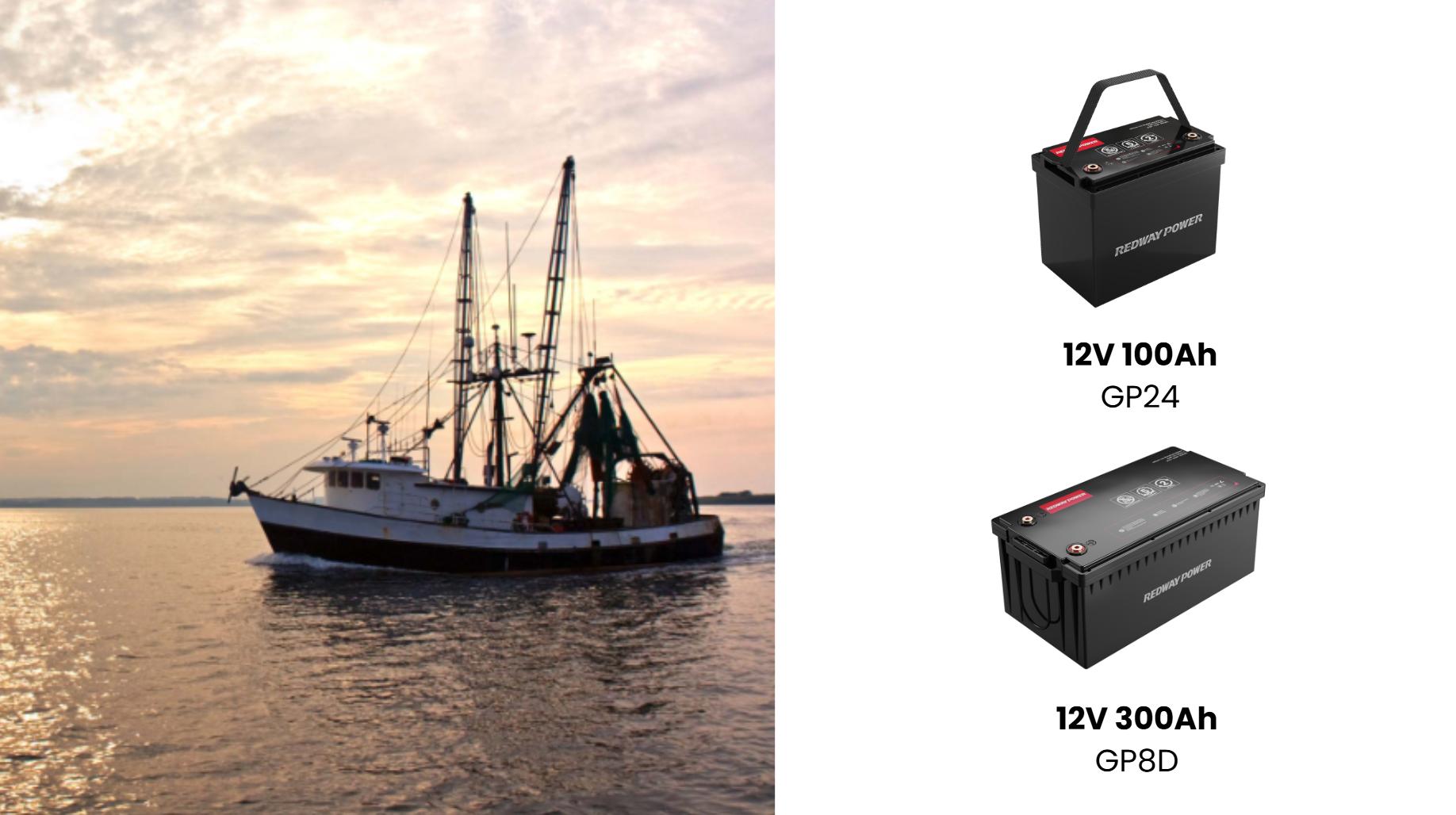A 12V deep cycle marine battery is engineered for prolonged energy discharge, unlike starter batteries that deliver short bursts. It uses thicker lead plates and denser active material to withstand repetitive deep discharges (80-100% depth of discharge) while maintaining performance—critical for trolling motors, onboard electronics, and marine applications requiring sustained power.
What Are the Key Features of a High-Quality Marine Deep Cycle Battery?
Premium 12V marine batteries include features like AGM (Absorbent Glass Mat) or gel technology for spill-proof operation, corrosion-resistant terminals, and reinforced grids. Look for high reserve capacity (100+ minutes), vibration resistance, and compatibility with smart chargers. Top models exceed 500 cycles at 50% discharge, with warranties spanning 3-8 years depending on construction.
Which Battery Chemistry Is Best for Marine Deep Cycle Applications?
AGM batteries dominate marine use due to maintenance-free operation, faster recharge rates (30% quicker than flooded), and resilience to vibration. Lithium-ion (LiFePO4) alternatives offer 2000+ cycles and 50% weight reduction but cost 3x more. Flooded lead-acid remains budget-friendly but requires regular watering and vertical mounting.
Wholesale lithium golf cart batteries with 10-year life? Check here.
How to Properly Maintain a 12V Deep Cycle Marine Battery?
Maintenance protocols include:
– Monthly voltage checks (12.6V+ at rest)
– Avoiding discharges below 50% capacity
– Using temperature-compensated chargers (14.4-14.8V absorption)
– Cleaning terminals with baking soda solution
– Equalizing flooded batteries quarterly (15.5V controlled overcharge)
Storage at 50-80% charge in cool, dry environments prevents sulfation.
What Are the Signs of a Failing Marine Deep Cycle Battery?
Failure indicators include:
– Voltage drop below 10.5V under load
– Swollen case from overcharging
– Sulfur odor (flooded types)
– Reduced runtime exceeding 20% of original capacity
– Inability to hold charge for 24+ hours
Load testing with a digital analyzer provides definitive diagnosis.
Want OEM lithium forklift batteries at wholesale prices? Check here.
Why Choose Lithium Over Traditional Lead-Acid for Marine Use?
Lithium batteries provide:
– 98% usable capacity vs 50% in lead-acid
– 10-year lifespan with 2000+ cycles
– 50-70% weight reduction (critical for hull performance)
– Maintenance-free operation
– Faster charging (1-2 hours with compatible systems)
Though initial costs are higher ($800-$2000), total ownership costs often prove lower.
How to Calculate the Correct Battery Size for Your Boat?
Use this formula:
(Total Amp-Hours Needed) = (Device Watts × Hours Use) ÷ 12V × 1.2 (Safety Margin)
Example: 50W fishfinder × 8 hours = 400Wh ÷ 12V = 33.3Ah × 1.2 = 40Ah minimum. Always select a battery with 20-30% excess capacity to avoid deep discharges.
Expert Views
“Modern marine batteries demand smart management. Our tests show that pairing lithium batteries with Bluetooth-enabled battery monitors (like the Redway RS-Marine Pro) extends cycle life by 40% through precise state-of-charge tracking and load optimization,” says James Calloway, Lead Engineer at Redway Power Solutions.
Conclusion
Selecting the optimal 12V deep cycle marine battery requires balancing chemistry, capacity, and vessel requirements. While AGM remains the mainstream choice, lithium technology is revolutionizing marine power with unprecedented efficiency. Regular maintenance paired with advanced monitoring systems ensures maximum ROI on your marine battery investment.
FAQs
Q: Can I use car batteries for my trolling motor?
A: No—automotive batteries aren’t designed for deep discharges and will fail prematurely under marine loads.
Q: How often should I replace my marine battery?
A: Flooded: 3-5 years; AGM: 4-7 years; Lithium: 8-12 years, depending on cycle depth and maintenance.
Q: Is it safe to charge marine batteries onboard?
A: Yes, using marine-grade chargers with spark-proof connectors and automatic voltage regulation.






